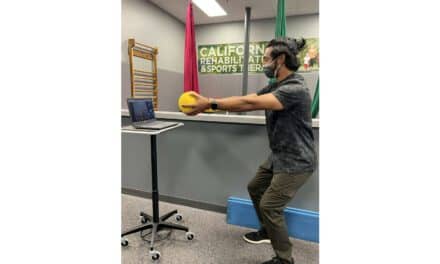Certain telehealth rehabilitation treatments can be effective in addressing cognitive deficits associated with multiple sclerosis (MS), according to researchers from Kessler Foundation and University of Alabama.
Their study, published in Nature Reviews Neurology, looked at studies published in recent years on cognitive rehabilitation, physical exercise, and pharmacological treatments targeting the cognitive deficits of people with MS.
While about two-thirds of MS patients experience cognitive impairment as a result of the disease, regular assessment and treatment of cognitive function of such patients in clinical practice is “rare,” they note. Playing brain games, however, could help.
BrainHQ cognitive exercises made by Posit Science Corporation “demonstrated both good feasibility and efficacy” and that “patient adherence across studies was impressive, indicating the practicality of such home-based training,” they note, in a media release from Posit Science.
In addition to favorably reviewing studies of BrainHQ in populations with MS, the reviewers also reference positive results in studies of BrainHQ in aging populations that improve everyday life (specifically citing studies showing reduced incidence of car crashes and dementia risk) as evidence that cognitive rehabilitation can have other long-term benefits.
At the end of their review, the authors conclude that “cognitive rehabilitation has shown consistent beneficial effects in patients with MS and currently represents the best approach for treating MS-related cognitive impairment.”
They also conclude there is currently “insufficient evidence” to support pharmacological approaches, and that the evidence for physical exercise, “although promising, remains preliminary and more work is needed to establish a clear role in clinical practice.”
“We are heartened by this literature review — not just for its complimentary review of BrainHQ studies, but especially for its recognition that more needs to be done to translate recent study results into standard clinical practices,” Dr Henry Mahncke, CEO of Posit Science, says in the release.
“We are in discussions with leading medical providers about establishing centers of excellence to refine clinical best practices in the use of our tele-rehabilitation tools.”
[Source(s): Posit Science, GlobeNewswire]





